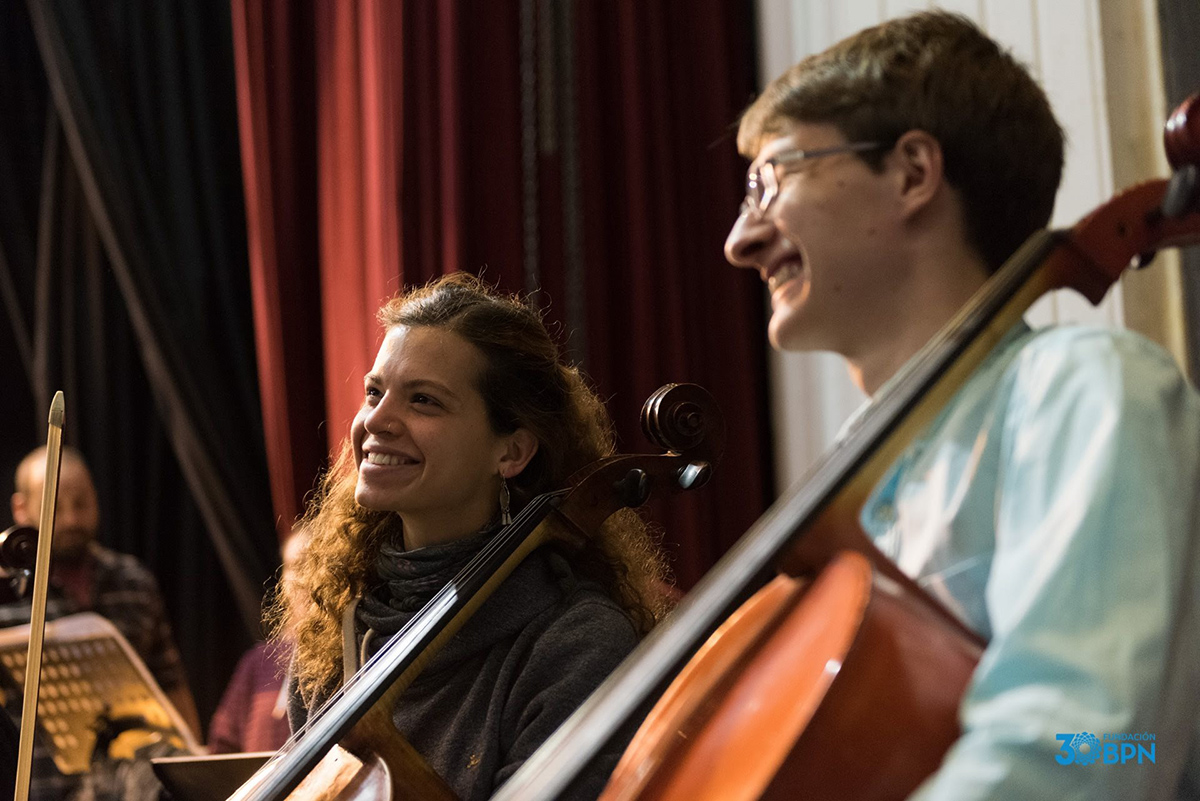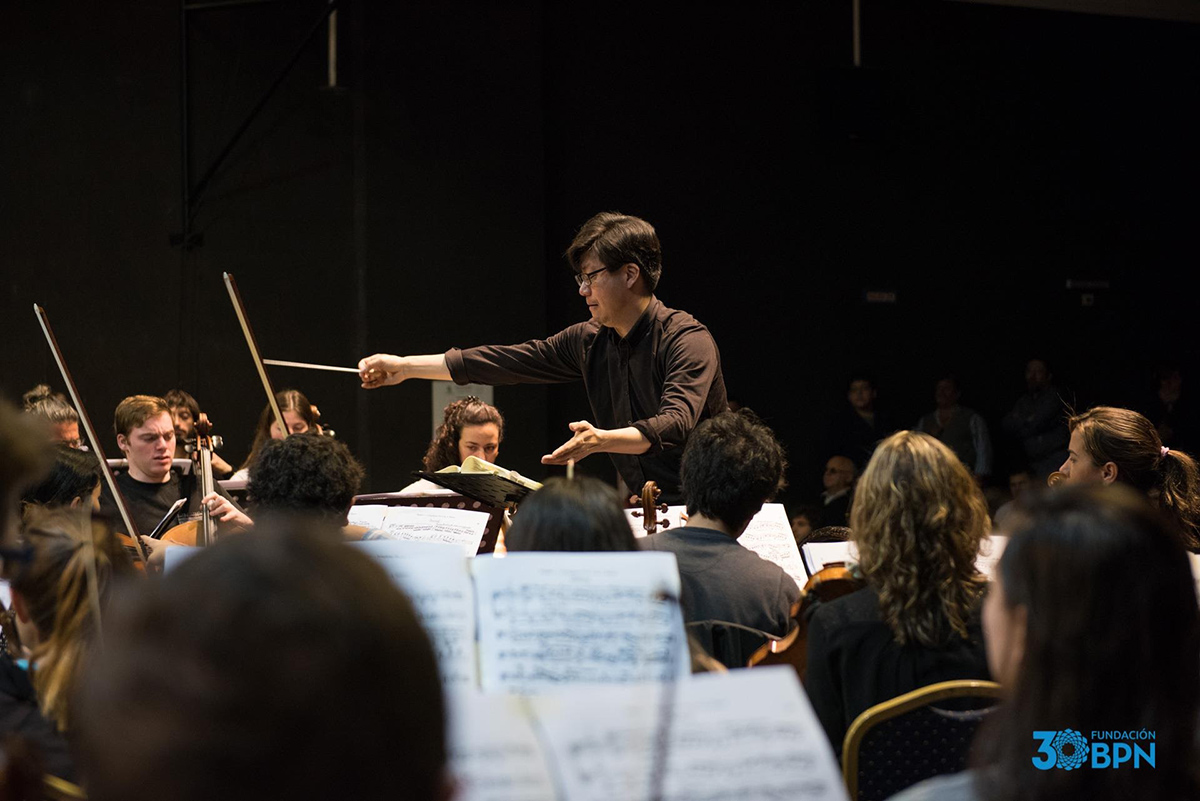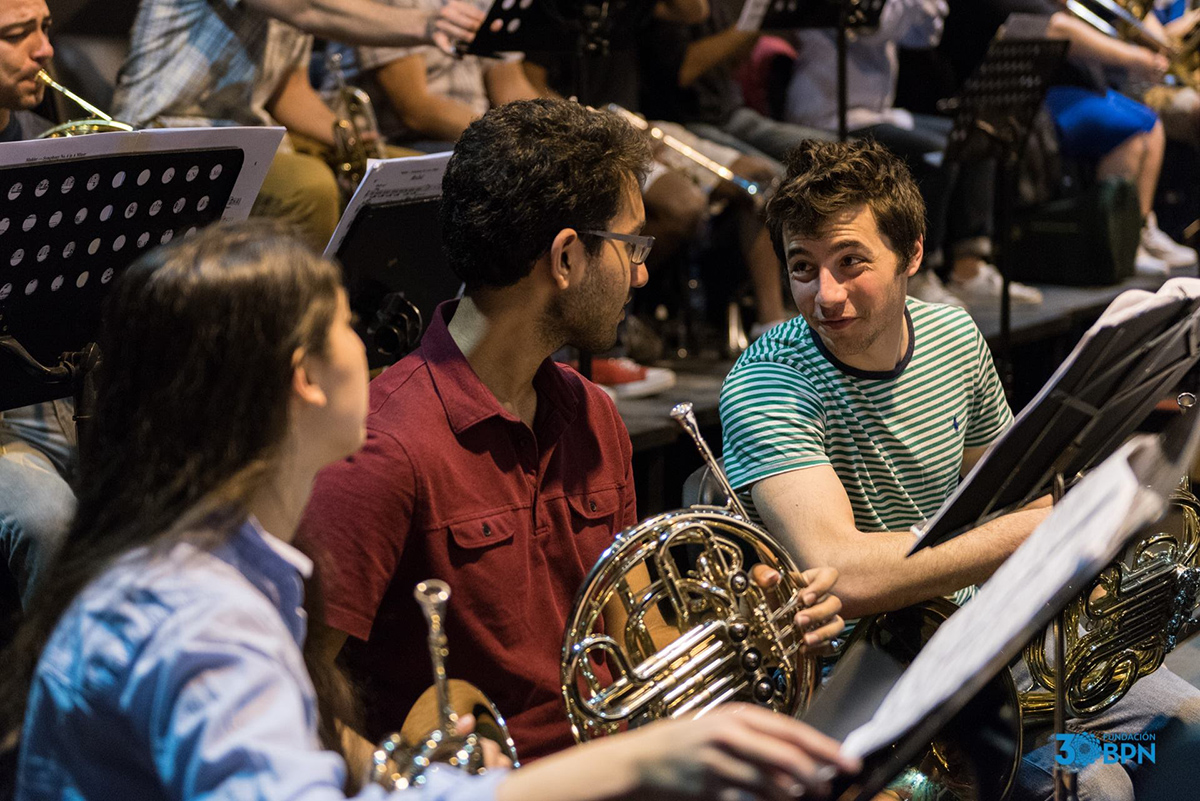Orchestra members forge cultural bonds on Argentina trip
By Daniel Aloi

Cornell Orchestra members traveled to central Argentina over spring break to collaborate with musicians in Neuquén in northern Patagonia, tackling one of the most challenging works in classical music.
Sixty musicians from the Cornell Symphony Orchestra (CSO) and Cornell Chamber Orchestra joined La Orquesta Sinfónica del Neuquén for a concert at the Cine Teatro Español, a combined performance (with 120 musicians in all) of Gustav Mahler’s Symphony No. 6.
The concert, “Nueva York & Neuquén,” was presented by the nonprofit Fundación Banco Provincia del Neuquén and attended by more than 900 people, including provincial officials.
Conducting duties were shared by Cornell director of orchestras Chris Younghoon Kim and Andrés Tolcachir, conductor of the Neuquén symphony, the only professional orchestra in Patagonia.

“Working on Mahler’s 6th with a professional orchestra as our second performance of the piece was a great learning experience for the students in the orchestra,” Kim said. “Living in the city, working together with musicians [and] sharing great music with the citizens of that city was an illuminating way to experience another country.”
The Mahler work, at 86 minutes one of the longest pieces in classical repertoire, is “almost an hour and a half of solid intensity,” and especially daunting for “an orchestra of mainly nonmusic majors,” violinist Jaclyn Lunger ’17 said.
“Somehow we were going to put together this concert in a little under a week,” she said. “To put this into perspective, consider that the CSO usually has over a month to prepare for every concert. … Here we were, two completely different orchestras, who started out with two different interpretations, and two different languages to boot.”
The combined Cornell orchestras had first performed the symphony, which features a wooden box struck by a large hammer among its instrumentation, in two parts at concerts in Bailey Hall last fall.
Violinist Chloe Amsterdam ’20 said: “I had Mahler at least in the back of my mind for the better part of the year. … Knowing so many people were enthusiastic about coming to the concert made it all the more exciting. Seeing the progress that occurred in just four rehearsals was incredible.”
The tour group included undergraduate and graduate students, three alumni musicians and Cornell law professor and bassist Stewart Schwab.

The weeklong trip allowed time for the Cornellians to take in the local culture. They explored neighborhoods in Buenos Aires and Neuquén, hiked Cerro Campanario in the Andes, and formed friendships with the Neuquén musicians. After morning rehearsals, members of the two groups shared meals and maté, and organized a soccer match one afternoon.
“That willingness of the Neuquén orchestra to reach out and spend time with us outside rehearsal made our time in rehearsal that much more enjoyable,” Amsterdam said. “Without the energy that these newfound friendships brought, I don’t think the Mahler would’ve come together as well as it did. It required immense focus and communication to play through the entire piece.”
“For our friends back in Neuquén, we helped show them the importance of what they’re doing for their community and the bonds that can be forged across barriers of language and distance,” cellist Colin Barber ’17 said. “They are performing a valuable but endangered service and they deserve the reminder that what they do every day is worth more than gold.”

The collaborative cultural exchange was initiated in September 2014 when Kim was invited to guest conduct the Neuquén symphony. Tolcachir traveled to Ithaca to guest conduct the CSO the following month. To follow up this tour, Kim has invited the Neuquén orchestra to perform in New York.
“It is meaningful to have this multiyear collaboration as we really get to know the conductor and the orchestra of our sister city of Neuquén,” Kim said. “We look forward to the next collaboration with the Neuquén musicians when they travel to Ithaca and New York City in the next few years.”
The tour was co-sponsored by the International Students Union. Tour expenses were supported by donors to a Cornell crowdfunding campaign that raised nearly 150 percent of its goal last fall.
Media Contact
Get Cornell news delivered right to your inbox.
Subscribe